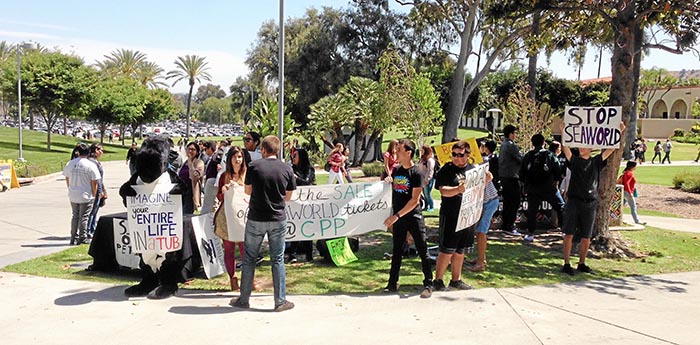
From Higher Ed Dive
By Jeremy Bauer-Wolf
April 5, 2022
Dive Brief:
Georgia’s legislature on Monday passed a bill that would abolish free speech zones at the state’s public colleges, banning a system that critics say chills free expression.
Free speech zones are places on campus designated for demonstrations and other forms of expression. At public colleges across the U.S., they are sometimes the sole areas of campus where officials permit protests. Georgia’s legislation specifies most outdoor spots on public campuses would be considered open areas for expression.
Georgia’s public institutions could still create “narrowly tailored” rules governing when and how students can protest. Such rules, known as time, place and manner restrictions, are intended to avoid campus disruptions.
Dive Insight:
Free speech zones emerged amid the tumult of the 1960s and 1970s, created as spaces where college students could protest without fear of reprisal and so that unrest would potentially be confined.
However, college administrators began treating them as the exclusive spot where students could protest on public campuses, which courts have widely interpreted as unconstitutional.
One recent legal battle around free speech zones occurred at Los Angeles Pierce College, part of the Los Angeles Community College District.
A Pierce College student, Kevin Shaw, sued in 2017 after an administrator stopped him from passing out Spanish copies of the U.S. Constitution. Shaw was told he needed to obtain a permit and confine his activities to the campus’ free speech zone, which was a little more than 600 square feet, slightly larger than the size of or three parking spaces.
The community college district settled with Shaw, abandoning its policy of designating free speech spots on its campuses and paying his $225,000 in attorney fees.
The number of campuses with free speech zones has been shrinking. The Foundation for Individual Rights in Education, a civil liberties watchdog that assisted Shaw in his lawsuit, found in a recent report only 25 of the roughly 480 colleges whose free inquiry policies it tracks had free speech zones. This amounts to about 5% of those campuses.
This is down from about 16% of colleges with free speech zones in a similar 2013 FIRE survey.
State legislatures have abolished campus free speech areas, including those in Virginia, Missouri, Arizona, Kentucky and Colorado.
Some of these state laws have teeth. Utah banned free speech zones at public colleges in 2017. Under the state’s law, an institution that violates an individual’s rights in a free speech zone case may be ordered to pay $500 initially to that person, and then $50 a day if the college was notified but continued to be in breach.
Georgia’s bill includes no such consequences. It heads to the desk of Gov. Brian Kemp, a Republican. Kemp’s office did not respond to a request for comment Tuesday. If Kemp signs it, it will take effect July 1.
The legislation also directs the state’s governing boards to compile a report annually detailing barriers to free expression in public colleges, how administrators punished free speech violations and actions the institutions took to preserve neutrality on political and social issues.
On the federal level, in 2018, then-Sen. Orrin Hatch, a Utah Republican, introduced legislation to ban free speech zones at public institutions nationwide. That measure did not advance out of the Senate Health, Education, Labor and Pensions Committee.
Photo: Pasadena Star-News
Read this and other stories at Higher Ed Dive

